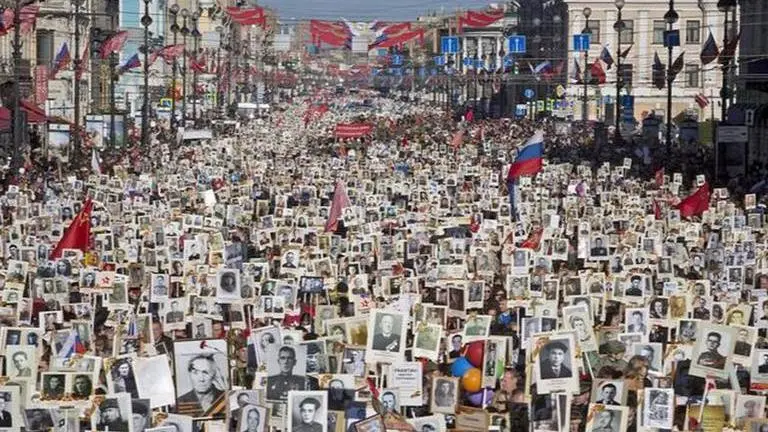Updated 8 May 2023 at 18:25 IST
Berlin court overturns ban on Russia flag ahead of Victory Day 'Immortal Regiment' march
A Berlin administrative court has overturned a ban on displaying Russian flags at the upcoming Victory Day ‘Immortal Regiment’ march in the German capital.
- World News
- 2 min read

A Berlin administrative court has overturned a ban on displaying Russian flags at the upcoming Victory Day ‘Immortal Regiment’ march in the German capital. According to a report from Russia Today, the ban was imposed by the city’s police, citing security concerns and the possibility of glorifying the Russian military operation in Ukraine. The police had also prohibited the display of Soviet, Ukrainian, and mock military flags and uniforms, as well as the orange and black St. George ribbons. The Berlin police said they have already appealed the latest ruling with the top administrative court, which is expected to make a decision later on Sunday.
Last year’s Victory Day celebrations saw similar restrictions on the display of Russian and Ukrainian flags, aimed at keeping the events “clearly separated from the situation in May 2022”. Several German states have also banned symbols associated with Russia’s military operation in Ukraine, including the letter ‘Z’, which has been used as a tactical marking by some units of the Russian military and has since come to symbolise the Russian offensive. The Victory Day ‘Immortal Regiment’ march in Berlin will take place on May 9 at the Tiergarten Soviet-era war memorial.
Here is what you need to know about Victory Day 'Immortal Regiment' march
The Victory Day 'Immortal Regiment' march is an annual march held on May 9th to commemorate the Soviet Union's victory over Nazi Germany in World War II. The march began in Russia in 2012 and has since spread to other countries with significant Russian populations. Participants in the march carry photographs of their relatives who fought in the war as a way of honouring their memory.
While the march has been largely non-political in nature, it has become a source of controversy in some countries due to tensions between Russia and other nations. In recent years, some officials in Ukraine and other countries with strained relations with Russia have criticised the Immortal Regiment march as an attempt to glorify Soviet-era military achievements and to promote Russian nationalism. Despite these controversies, the Immortal Regiment march continues to be an important tradition for many families and veterans who wish to honor the sacrifices of their loved ones in World War II.
Advertisement
Published By : Digital Desk
Published On: 8 May 2023 at 18:25 IST
